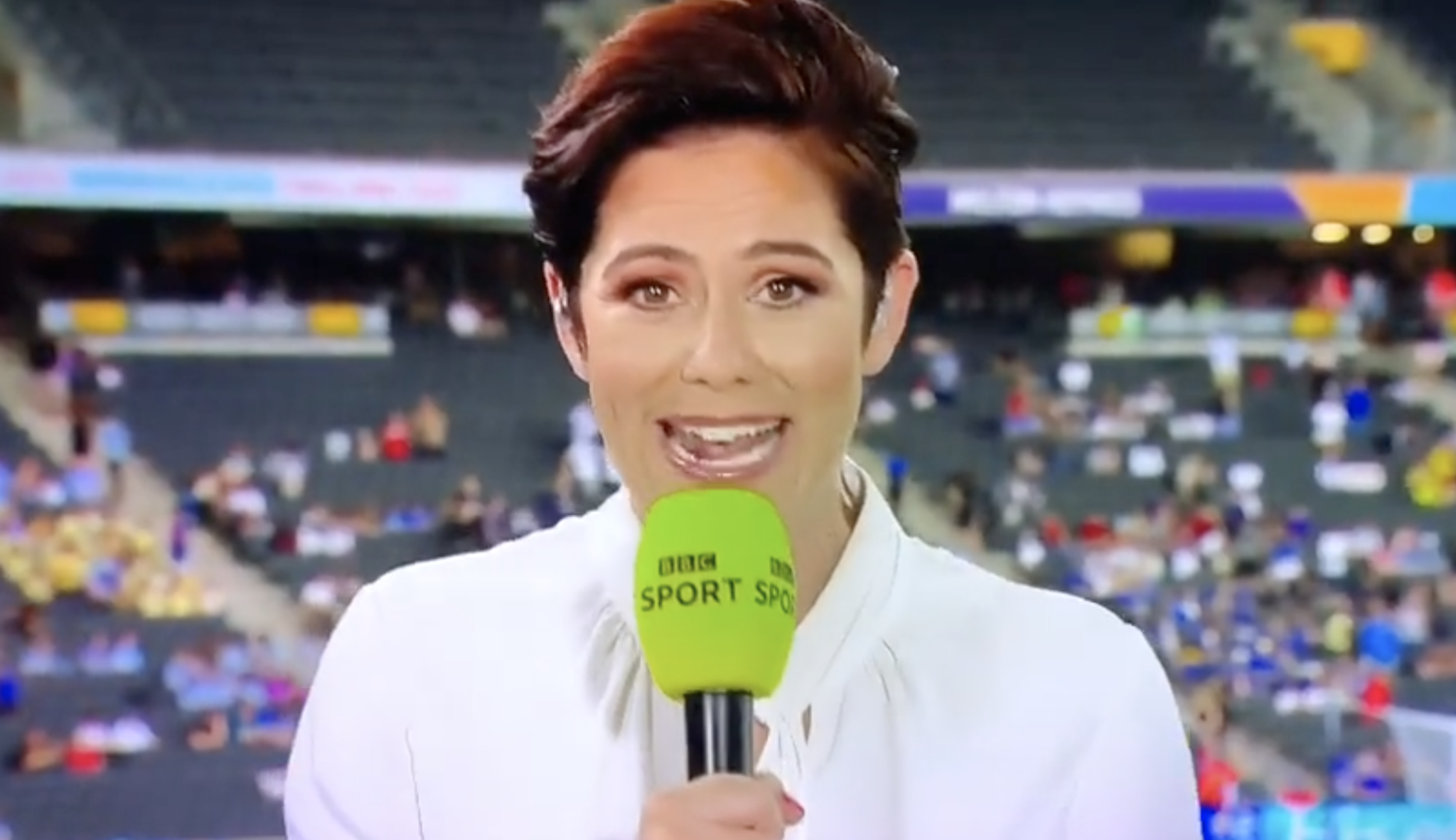The UK’s public broadcaster has been accused of unnecessarily stoking racial tensions after footage went viral of one of its presenters commenting on the lack of diversity in the England women’s soccer team.
Reporting on the Lionesses’ record-breaking 8-0 thumping of Norway on Monday evening, BBC presenter Eilidh Barbour highlighted the racial make-up of the women’s team, all of whom currently happen to be White women, before discussing an “investigation” into why this is the case.
Barbour commented on what she described as “a historic eight-goal victory for England last night as the Lionesses secured their place in the quarter finals,” before stating, “But all starting XI players and the five substitutes that came on to the pitch were all White, and that does point to a lack of diversity in the women’s game in England.”
Some will question the significance and indeed relevance of such a statement, considering 84.8 percent of the population in England and Wales are White, according to the latest Office of National Statistics data compiled in 2019.
For context, six of the players to feature in the last fixture of the England men’s team, a heavy 4-0 defeat at home to Hungary, were Black. In the semi-final of the England women’s last major tournament, the 2019 Women’s World Cup, two of the starting XI were Black.
Political commentators took to social media to chastise the British public broadcaster for manufacturing an issue that would only stoke racial tension.
GB News presenter Darren Grimes slammed the BBC’s “constant race baiting,” and highlighted that it was strangely silent over the fact that the organization’s 10 highest-paid on-air stars published earlier this week also all happen to be White.
“When did it become OK to talk about being ‘White’ as if it was a virus that ought to be eradicated?” Grimes tweeted.
Fellow conservative commentator Emily Hewertson said she felt sorry for England women’s coach Sarina Wiegman, who said simply she “can’t win.”
“If they, for example started Nikita Paris, one of the less in-form players in the squad, and England proceeded to lose that match, I am sure BBC commentators would be criticizing the manager’s strange choice to start her,” Hewertson tweeted, before highlighting that there was not a single White woman selected to represent Team England in the 100-meter, 200-meter, and 400-meter events at the most recent Commonwealth Games.
“Is anyone up in arms about that? No. Of course they aren’t, and if they are, I would be saying the same thing,” she added.
In a column for MailOnline on Thursday, presenter Dan Wootton said: “No wonder we’re turning off the woke BBC in droves when they’re using our brilliant football Lionesses to stoke racial divisions. He continued:
“Is the BBC suggesting national sporting teams should now have ethnic quotas?
Or do they have evidence of systemic racism within women’s football? If so, they should investigate and produce evidence before broadcasting.
More likely, this was just yet another attempt to try and paint England as institutionally racist, when the Sewell Report concluded conclusively that is not the case.”
The clip received international exposure, with Sky News Australia’s Rita Panahi commenting: “Has there ever been any concern expressed about the ‘lack of diversity’ in an NBA, NFL, or track and field team?”
Meanwhile, former U.S. congressional candidate Barrington Martin II tweeted: “When you begin to care about things like diversity more so than excellence, you’re priming yourself for self-destruction.”
Conservative leadership hopeful Kemi Badenoch, interviewed by LBC radio’s Iain Dale on Thursday evening, commented on the broader debate regarding diversity in British society and responded to accusations that she is stoking tension by opposing the practice of Critical Race Theory.
“I don’t see skin color. I see individuals, I think looking at skin color all the time is divisive. So how can my saying that be divisive?” Badenoch asked.





